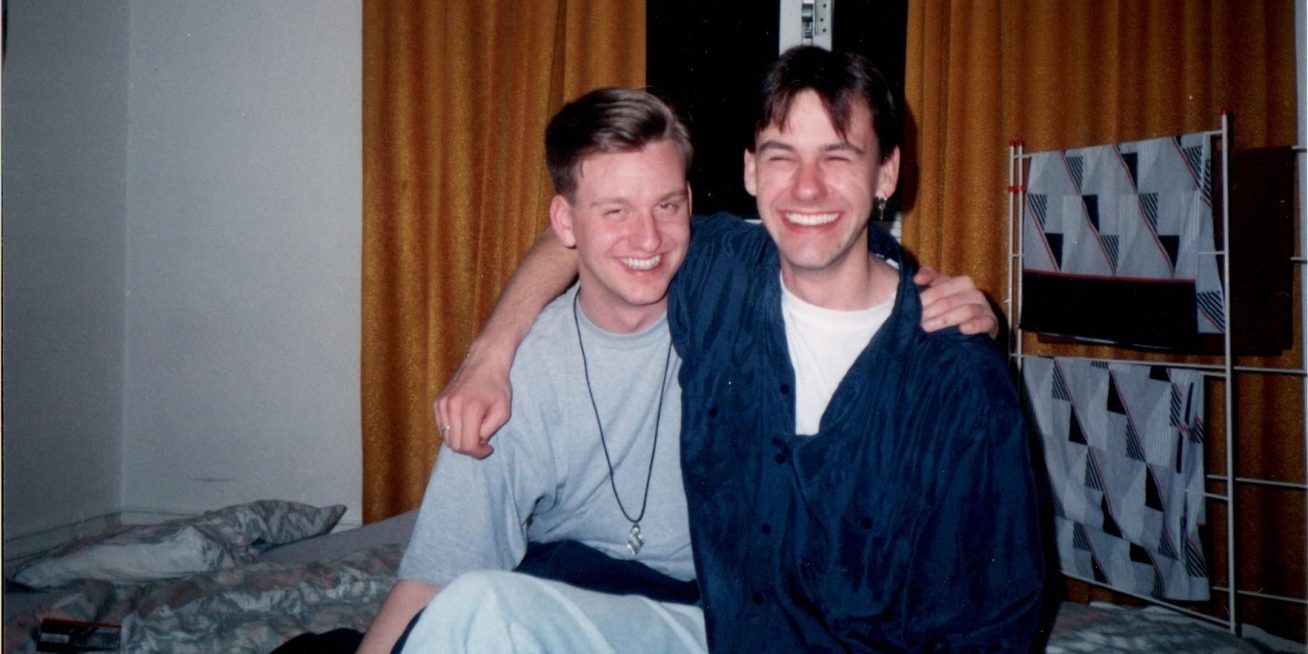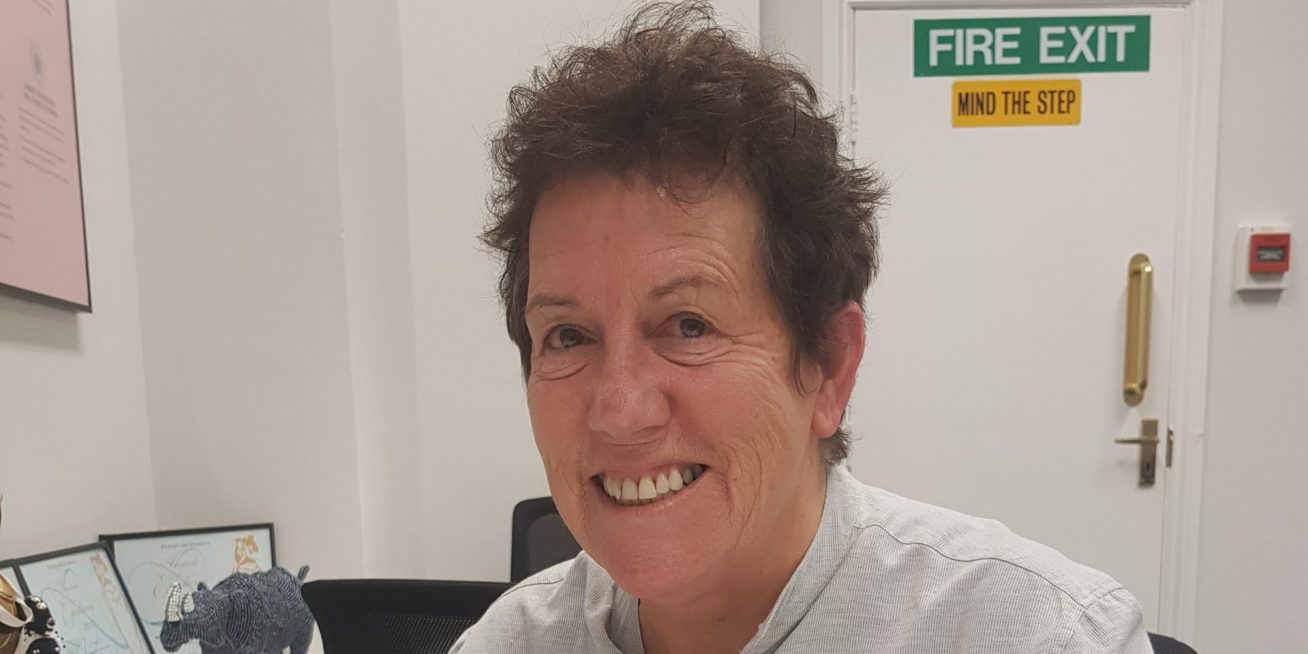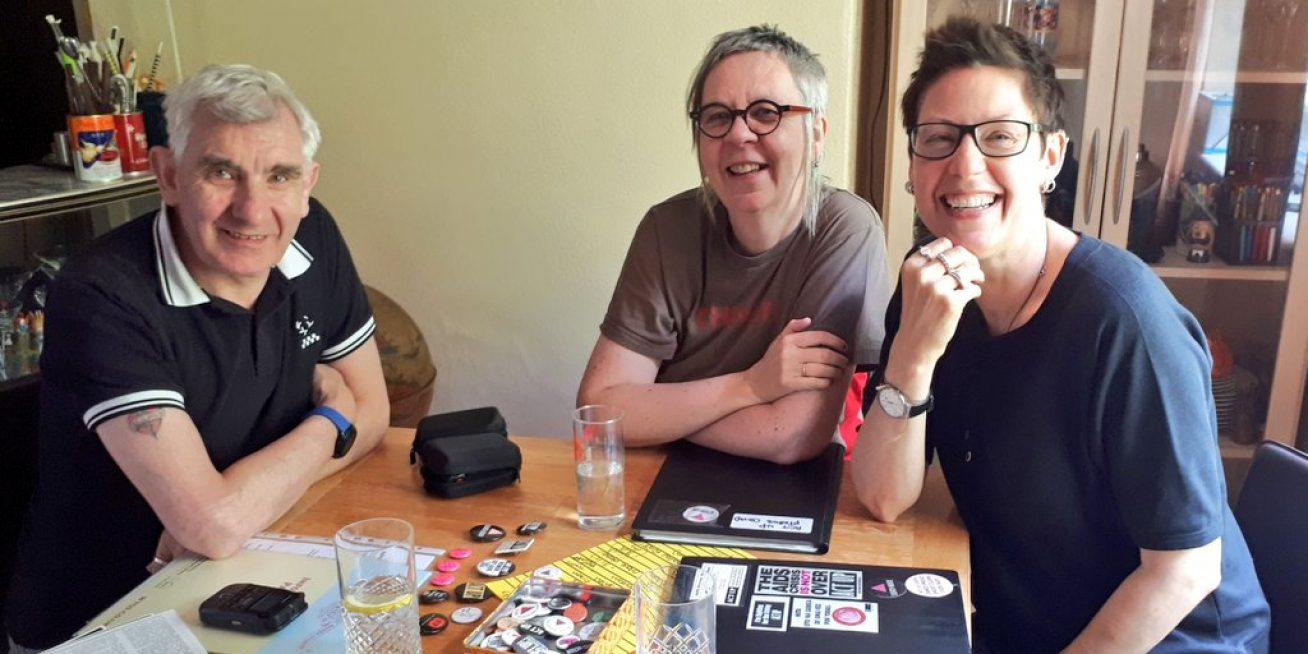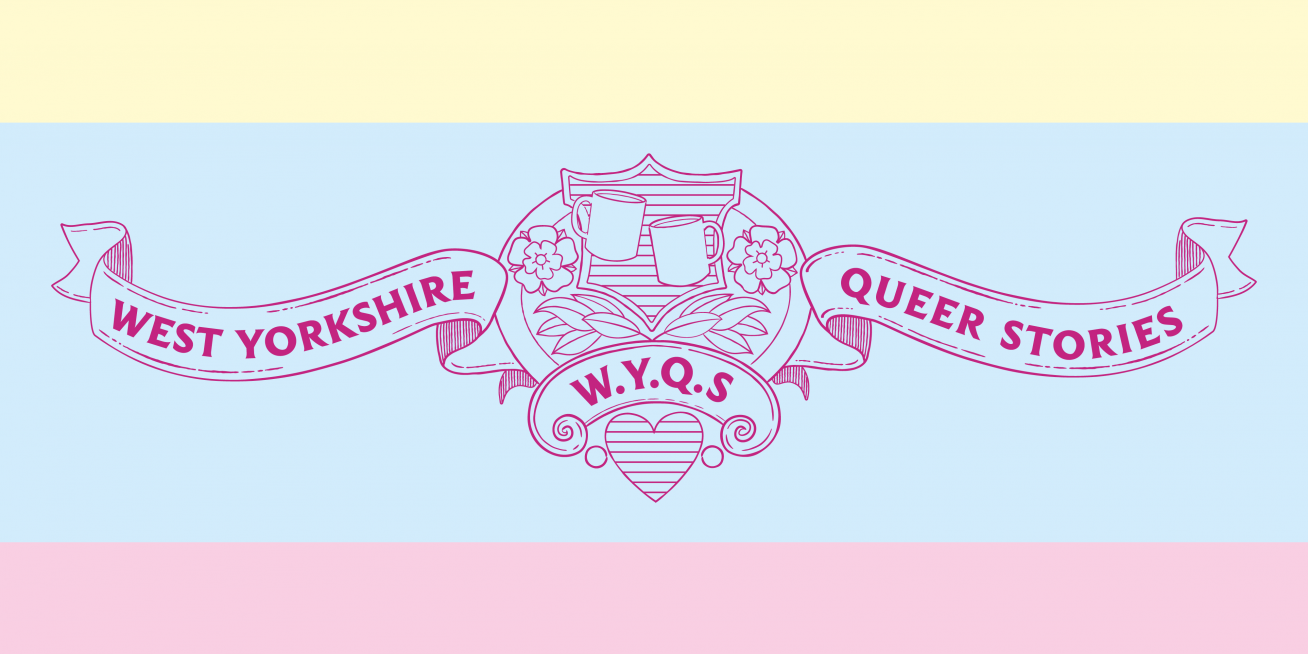AIDS and the deaf community
Howard describes the lack of information and support deaf gay men received when the impact of AIDS started to be felt in the 1980s, and how it affected a friend of his who was deaf and HIV positive.
TRANSCRIPT
[This is a transcript of the interpreter's spoken translation of Howard's story.]So, happening back in the 1980s, there was a big worldwide scare linked with AIDS. You know, at that time we used the word 'AIDS'. HIV – you didn't really have the information, it wasn't really talked about, but there was a big thing about AIDS and that was everywhere.
But the Deaf community had no information, we didn't know. You know, ‘AIDS - A.I.D.S. – is that something to do with a hearing aid? Or some sort of technical aid?’ People had got no idea, and how would, why would that be linked with health? We really struggled with that.
So, oh, I'd say... I'm trying to remember when, really ... mid '80s, I'd guess. I was trying to work out exactly what this thing was, and get the information. I went through hearing friends and hearing people, to find out more about it. And it was linked with acquiring an illness, you know, your immune system was compromised. A lot of gay men were dying at the time and, you know, it wasn't great. And the same was happening in the Deaf community. There were deaths but people didn't know what was going on, we had no access. And we needed to improve this, you know, and try and prevent it from happening. We needed the information.
I was involved in something called AIDS Ahead, and it was an organisation for Deaf people linked for health. And we were trying to improve the health and trying to support Deaf people who'd acquired HIV. But the word 'HIV', once we knew about that, you know, it was something that you had that wasn't necessarily what caused the illness, you know, something happened later and you could have medication – but we didn't have medication back then. It was the same with everybody, it wasn't just the Deaf gay community; the research wasn't there so it was a worldwide issue.
[I] thought, right, we need to do something, we need to campaign to deal on prevention. We talked about condoms, and so on and so forth. What was interesting was, I became a 'buddy' and I supported a Deaf person. And he went through a terrible experience. So, this Deaf person, he went to one of the sexual health clinics. Back then, it was a GUM [genito-urinary medicine]. They called it a GUM clinic. They call them sexual health clinics now. It was very different from then to now! Back then, well, can you imagine the taboos, society's views? So it was very difficult for him to go for his tests.
So he went, and he was tested, they did the blood test and everything. And then he had to go back again a couple of weeks later. And he went back for his results. Now, there were no interpreters, the doctor was trying to speak to him – can you imagine? Really Deaf, he didn't have any access to speech. He might have written down a little bit of information, I don't know. The doctor said to him, 'The results, well, you know. You are HIV positive'. HIV positive, there we go – ‘positive’. He thought to himself, 'Oh, positive! Oh, that's good, I'm alright then!' You know, he thought he was alright coz he was told everything was positive. So he went back home. He had no idea, you know, he was fine, he kind of got on with his life and forgot about it and you know. He knew he wasn't really well himself but he just didn't really know. It's an interesting word though, isn't it, the word 'positive'? Generally it's no thing, rather than saying you've got something, you have something, it was used in a funny context.
Anyway, the doctors were a bit concerned and needed him to come back and was waiting for him to come back. So he wrote a follow-up letter and said, you know, 'Please come back'. My friend got this and he was like, 'Oh, why would I need to go back? I've been told I'm alright.' He was really thrown. So he went back to hospital and said, 'Well, no, why do you need to see me?' And the doctor said, ‘Well...' He tried to explain again, and the doctor said, 'Well, this word doesn't really, isn't getting through'. Different try, so well, 'You've got it, I'll try and different way'.
Well, my friend panicked. It was the first time he'd been told this. He thought to himself this word 'positive' meant it was OK. You know, you've got it, you know, this is the sign everyone uses, you're positive as in, you've now got it, you've acquired it. And that's the sign that you use now, rather than this positive sign that means everything's fine. You know, 'I've got a new job, everything's positive!' But that's the right context. But, you know, 'You've got it'.
So that was a huge and shocking experience for him; he had real, no access to information at all. So I became a buddy and tried to support him. And I was struggling to get the right information to try and pass this information on to him as well. Really difficult.
Now, medication now. Unfortunately, he did die: 1991 he died, because the medication wasn't there to really, to match his needs. People who have HIV now, you know, the medication is much improved, you know, prevents any of the symptoms. But back then, nothing unfortunately was available. We've learnt a lot from then till now, in how to improve the health outcomes. But in the 1980s, that was some really bad experiences, really frightening. Somebody would die, you know, you'd be thinking, 'Well, who's next?' And the Deaf community is such a small community, particularly the gay community in the Deaf community, you know, people would go missing. It was a horrible time, horrible experience.







